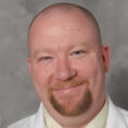Post-traumatic headaches.
Nøkkelord
Abstrakt
Chronic pain, especially headache, is an exceedingly common complication of traumatic brain injury (TBI). In fact, paradoxically, the milder the TBI, the more likely one is to develop headaches. The environment of injury and the associated comorbidities can have a significant impact on the frequency and severity of headaches and commonly serve to direct management of the headaches. Trauma likely contributes to the development of headaches via alterations in neuronal signaling, inflammation, and musculoskeletal changes. The clinical picture of the patient with post-traumatic headaches is often that of a mixed headache disorder with features of tension-type headaches as well as migrainous headaches. Treatment of these headaches is thus often guided by the predominant characteristics of the headaches and can include pharmacologic and nonpharmacologic strategies. Pharmacologic therapies include both abortive and prophylactic agents with prophylaxis targeting comorbidities, primarily impaired sleep. Nonpharmacologic interventions for post-traumatic headaches include thermal and physical modalities as well as cognitive behavioral approaches. As with many postconcussive symptoms, headaches can lessen with time but in up to 25% of patients, chronic headaches are long-term residua.


